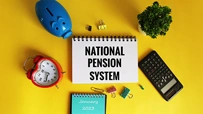New PMLA Rules for Overseas Investments: How to Stay Compliant
Disclaimer: This blog contains generic information. Ujjivan does not offer personal finance products or services & is not responsible for the accuracy of the information mentioned herein.
October 23, 2025

Investing abroad was once considered a simple diversification move. But as India’s financial footprint expands globally, regulators have tightened the rules to make sure the money flowing out of the country is clean, traceable, and legitimate.
The Prevention of Money Laundering Act (PMLA) now plays a central role in monitoring overseas investments. It ensures that every rupee sent abroad is accounted for, and that no one uses complex foreign structures to hide income or evade taxes. For Indian businesses, startups, and individuals investing through the Liberalised Remittance Scheme (LRS), these changes mean one thing: compliance now travels with your capital.
The government isn’t discouraging global investments. It’s simply making sure that such investments don’t turn into blind spots for illicit transfers. The new framework demands better transparency, documentation, and a clear link between the investor and the source of funds.
What Triggered the New PMLA Rules for Overseas Investments
The shift began with the PMLA amendments of 2023, which expanded the definition of “reporting entities” and tightened the rules around customer due diligence. Around the same time, the Foreign Exchange Management (Overseas Investment) Rules, 2022, and the Reserve Bank of India's 2024 Master Direction on overseas investments modernized India’s overseas investment framework.
Together, these reforms built a coordinated monitoring system between the Reserve Bank of India (RBI), the Financial Intelligence Unit (FIU-IND), and the Enforcement Directorate (ED).
Here’s what pushed regulators to act:
The goal isn’t just to prevent laundering, it’s to make India’s capital flows more credible, both at home and abroad.
What’s Actually Changed for Overseas Investors
The rules are far more detail-oriented now, and every player in the system, investor, banker, accountant, or consultant, has new responsibilities.
A. Expanded KYC requirements: Banks and financial institutions must now collect information about senior management, beneficial owners, and the ultimate source of funds. Even small overseas investments may require full disclosure of ownership and control structure.
B. Enhanced due diligence: Before transferring funds abroad, authorised dealers must verify whether the investment aligns with declared income, business activity, and purpose. Unclear transactions are flagged for the FIU-IND.
C. Cross-reporting between RBI and FIU: Information collected under FEMA’s overseas investment forms can now be shared with PMLA agencies — creating a single data trail for foreign transactions.
D. Lower beneficial ownership threshold: Earlier, only individuals holding 25 percent or more were classified as beneficial owners. The new PMLA Rules reduce this to 10 percent, meaning more entities now fall under disclosure.
E. Wider net of reporting entities: Even professionals such as chartered accountants, company secretaries, and cost accountants who assist in setting up offshore structures are now required to conduct basic due diligence and report suspicious transactions. However, legal professionals are not currently covered under these obligations.
F. Monitoring of tax-haven investments: Transfers routed through jurisdictions known for secrecy or low taxation are subject to enhanced scrutiny. While there's no specific rule mandating “economic substance” checks, banks are expected to ensure that the investments are transparent and not used for disguising the source or destination of funds.
Who Needs to Comply: New PMLA Rules for Overseas Investments
The updated framework casts a wider net than before. Compliance isn’t just for large corporations anymore; it applies across investor categories:
Every party involved must ensure that the source of funds, ownership chain, and purpose of investment are transparent and verifiable. Under the new PMLA rules, it’s no longer enough to have the right paperwork. Regulators now expect a clean, traceable story behind every transfer.
Red Flags That Now Attract PMLA Attention
Under the new regime, authorities are focusing on patterns, not just paperwork. Even a legally permitted overseas investment can come under the scanner if it shows irregularities such as:
Round-tripping: Funds leave India through one company and re-enter as “foreign investment” via another route
Each of these can trigger red flags in bank screening or FIU-IND analysis, inviting follow-up notices or inspections under PMLA.
How to Stay Compliant – A Simple Checklist for New PMLA Rules
1. Identify and Declare Beneficial Owners (BOs)
Disclose anyone owning or controlling 10 percent or more of shares or voting rights. Keep proof of identity and ownership on record.
2. Document the Source of Funds
Maintain evidence showing how the money was earned; audited statements, tax filings, or dividend receipts.
3. Use Authorised Channels Only
Route all remittances through RBI-authorised dealers. Avoid informal forex agents or third-party accounts.
4. Complete FEMA Reporting Accurately
File ODI/OPI forms on time with RBI, and match them with your bank’s remittance records.
5. Maintain Transaction Records
Keep digital copies of all transfers, invoices, and communications for at least five years — mandatory under PMLA.
6. Do Independent Due Diligence
Check your overseas partner’s background, business activity, and regulatory status before investing.
7. Audit Regularly
Conduct internal AML audits to ensure documents, filings, and ownership records remain updated.
8. Report Suspicious Activity
If you spot inconsistencies or suspect misuse, file a Suspicious Transaction Report (STR) through your bank or intermediary.
Penalties for Non-Compliance: New PMLA Rules
Ignoring the new PMLA rules can prove costly, not only financially but reputationally.
Here’s what violations can lead to:
Final Thoughts
The direction of reform is unmistakable. India wants a clean capital, not a closed capital. The PMLA-driven overseas-investment framework isn’t meant to burden honest investors; it’s meant to protect them.
For those willing to play by the rules, these updates bring a clear benefit. They can witness better credibility, easier cross-border banking, and long-term financial safety.
Disclaimer:
The contents herein are only for informational purposes and generic in nature. The content does not amount to an offer, invitation or solicitation of any kind to buy or sell, and are not intended to create any legal rights or obligations. This information is subject to updation, completion, amendment and verification without notice. The contents herein are also subject to other product-specific terms and conditions, as well as any applicable third-party terms and conditions, for which Ujjivan Small Finance Bank assumes no responsibility or liability.
Nothing contained herein is intended to constitute financial, investment, legal, tax, or any other professional advice or opinion. Please obtain professional advice before making investment or any other decisions. Any investment decisions that may be made by the you shall be at your own sole discretion, independent analysis and evaluation of the risks involved. The use of any information set out in this document is entirely at the user’s own risk. Ujjivan Small Finance Bank Limited makes no representation or warranty, express or implied, as to the accuracy and completeness for any information herein. The Bank disclaims any and all liability for any loss or damage (direct, indirect, consequential, or otherwise) incurred by you due to use of or due to investment, product application decisions made by you on the basis of the contents herein. While the information is prepared in good faith from sources deemed reliable (including public sources), the Bank disclaims any liability with respect to accuracy of information or any error or omission or any loss or damage incurred by anyone in reliance on the contents herein, in any manner whatsoever.
To know more about Ujjivan Small Finance Bank Products Visit:"https://www.ujjivansfb.in"
All intellectual property rights, including copyrights, trademarks, and other proprietary rights, pertaining to the content and materials displayed herein, belong
to Ujjivan Small Finance Bank Limited or its licensors. Unauthorised use or misuse of any intellectual property, or other content displayed herein is strictly prohibited and the same is not intended for distribution to, or use by, any person in any jurisdiction where such distribution or use would (by reason of that person’s nationality, residence or otherwise) be contrary to law or registration or would subject Ujjivan Small Finance Bank Limited or its affiliates to any licensing or registration requirements.
FAQs
1. What is PMLA, and how does it relate to overseas investments?
The Prevention of Money Laundering Act (PMLA) is India’s law against financial crime. It now extends to monitor overseas investments by ensuring all outward remittances and foreign holdings are backed by legitimate funds and proper documentation.
2. What are the latest PMLA amendments that affect overseas investors?
Recent updates (2023–2025) include lowering the beneficial ownership threshold to 10%, expanding the list of reporting entities, and linking FEMA’s overseas investment rules with PMLA’s due diligence framework.
3. Who is considered a “beneficial owner” under the new rules?
Anyone holding 10% or more of ownership, voting rights, or effective control in a company or trust is considered a beneficial owner and must be disclosed during KYC and compliance checks.
4. What documents do I need to stay compliant?
Investors must maintain KYC details, proof of income/source of funds, investment agreements, FEMA filings (ODI/OPI forms), and bank transfer records for at least five years.
5. Are small investors under the Liberalised Remittance Scheme (LRS) also covered?
Yes. Even individuals investing smaller sums abroad for property, stocks, or startups must comply with PMLA and FEMA requirements, especially around source-of-funds verification.
6. What are the penalties for non-compliance?
Violations can lead to asset attachment, fines up to ₹5 lakh per case, and possible PMLA prosecution. In serious cases, the Enforcement Directorate (ED) can freeze overseas assets.
7. What types of overseas investments attract extra scrutiny?
Investments routed through tax havens, multiple shell entities, or opaque trust structures are more likely to be reviewed for potential money-laundering risks.







